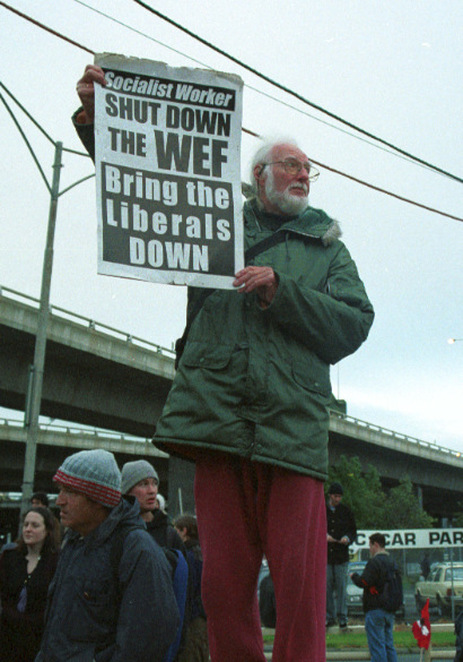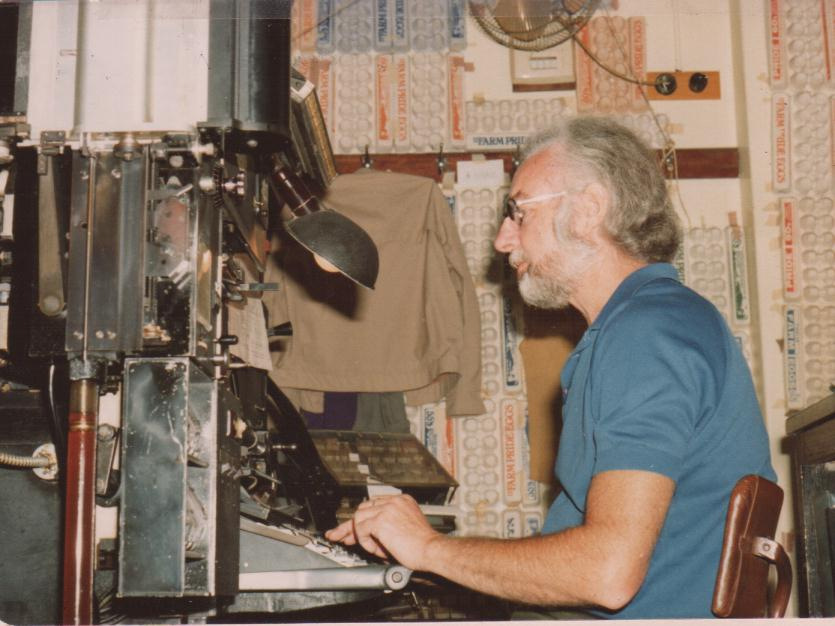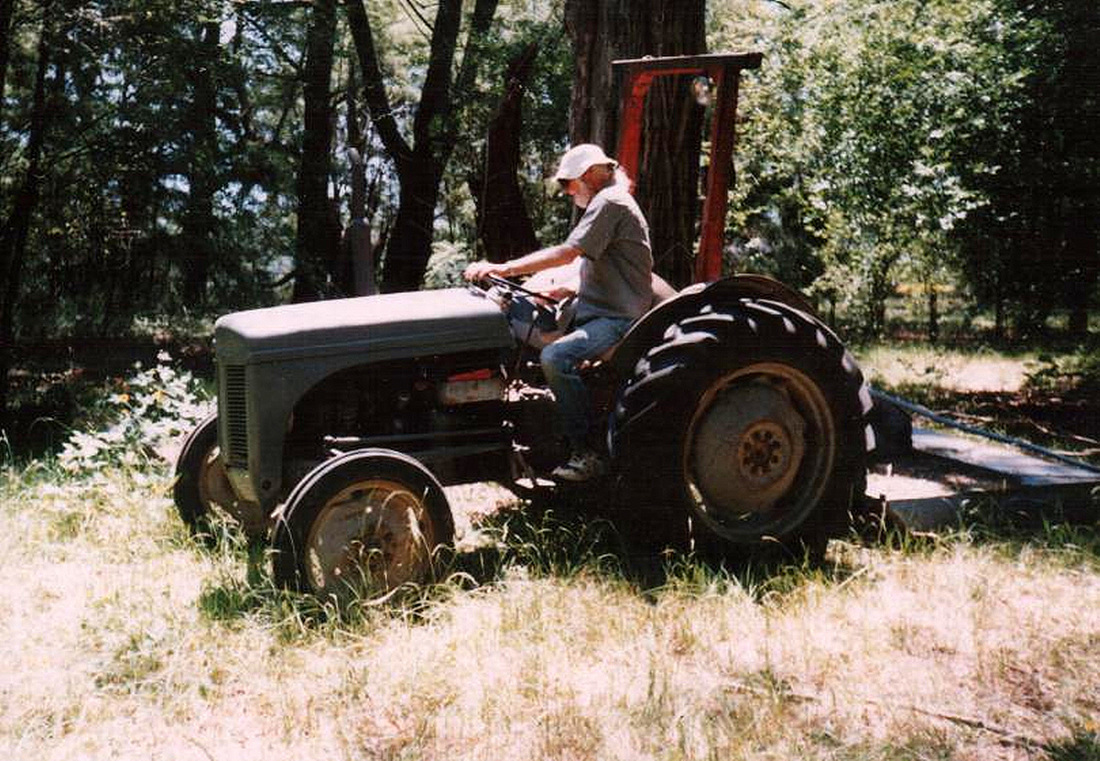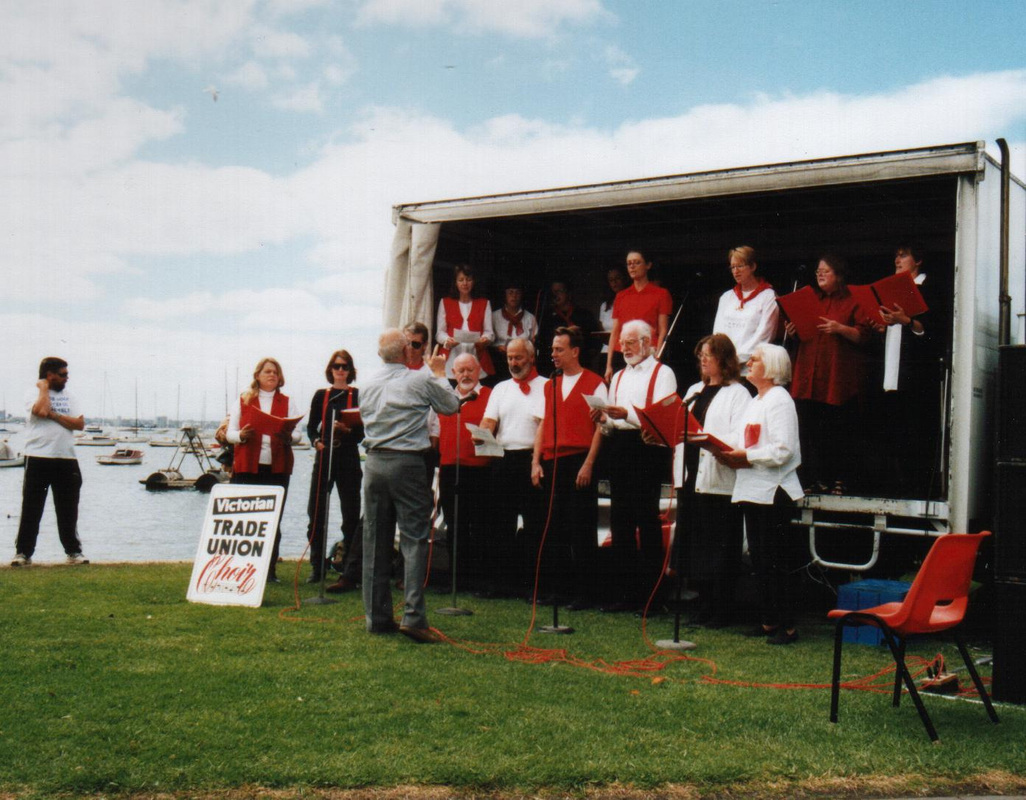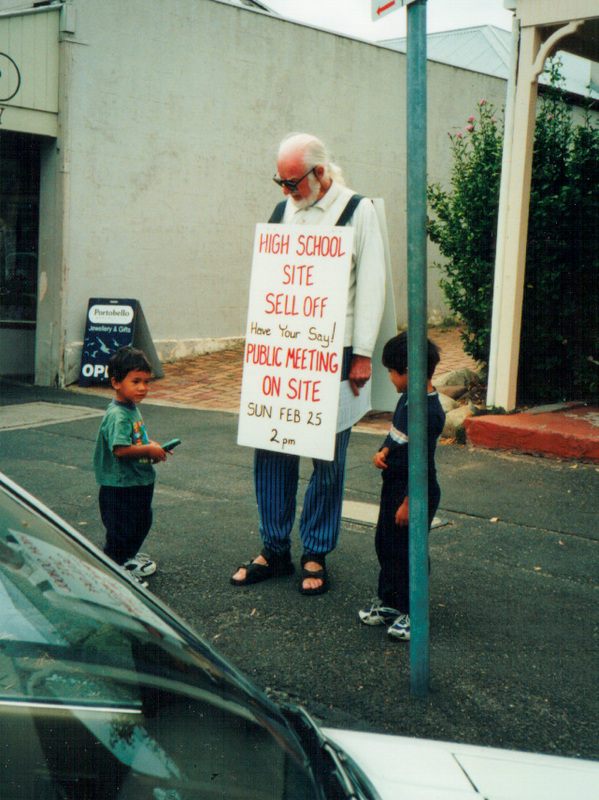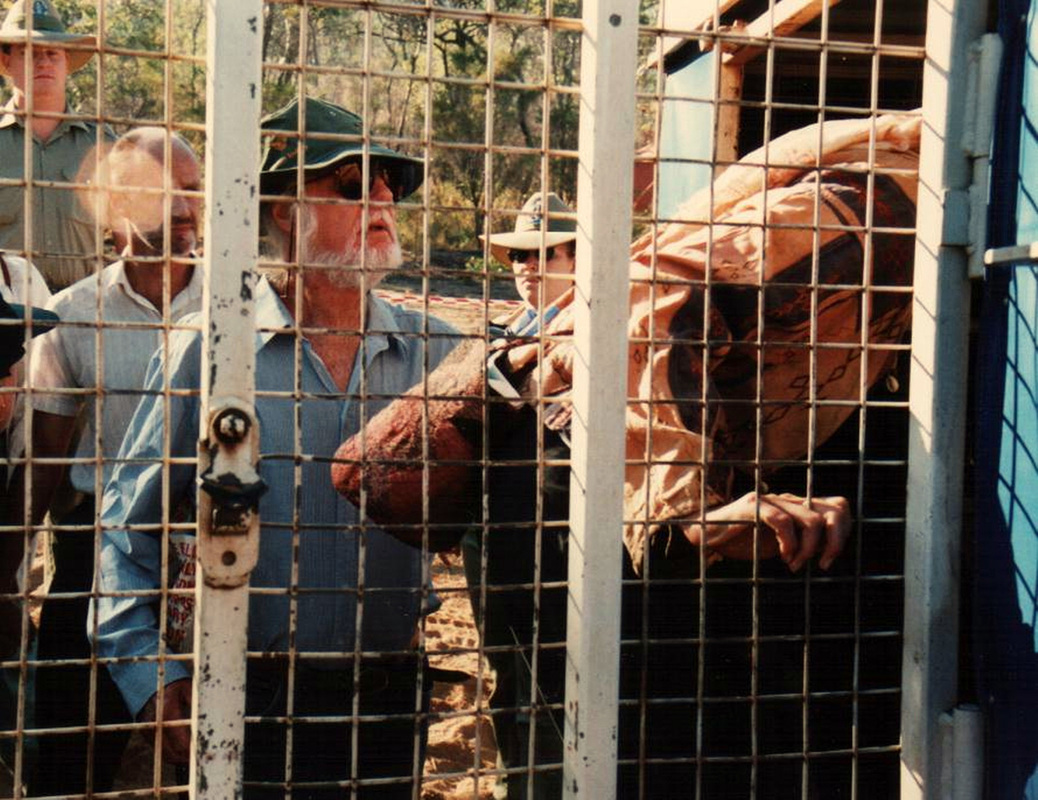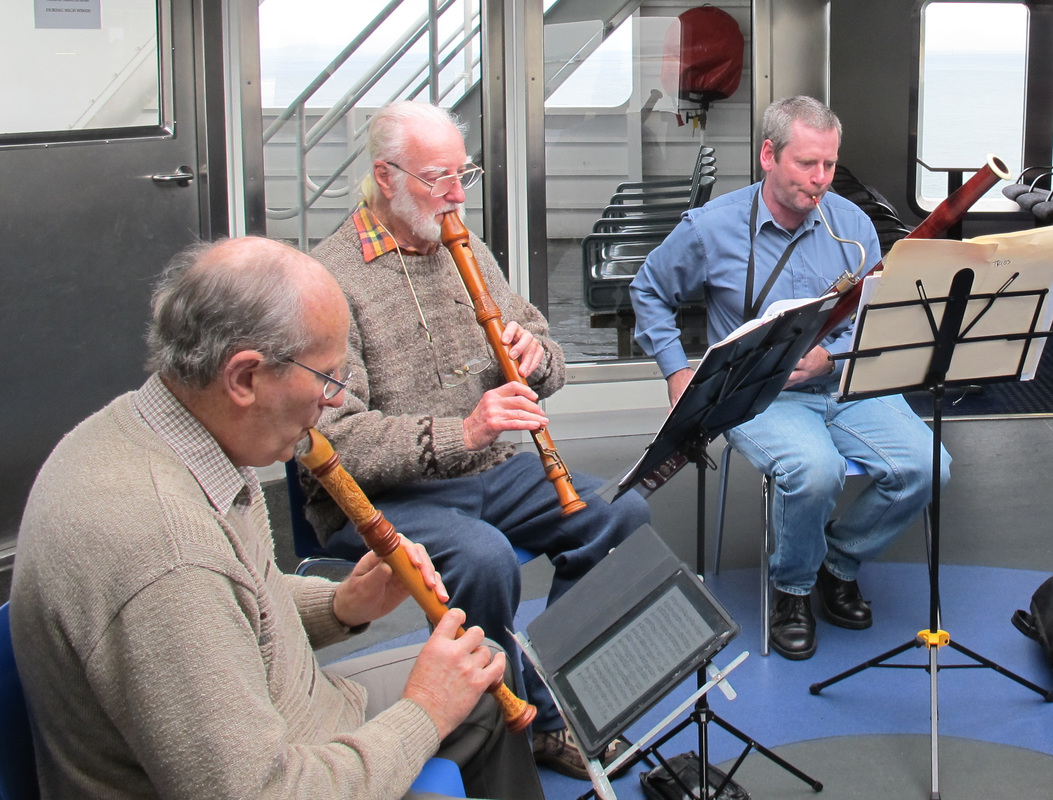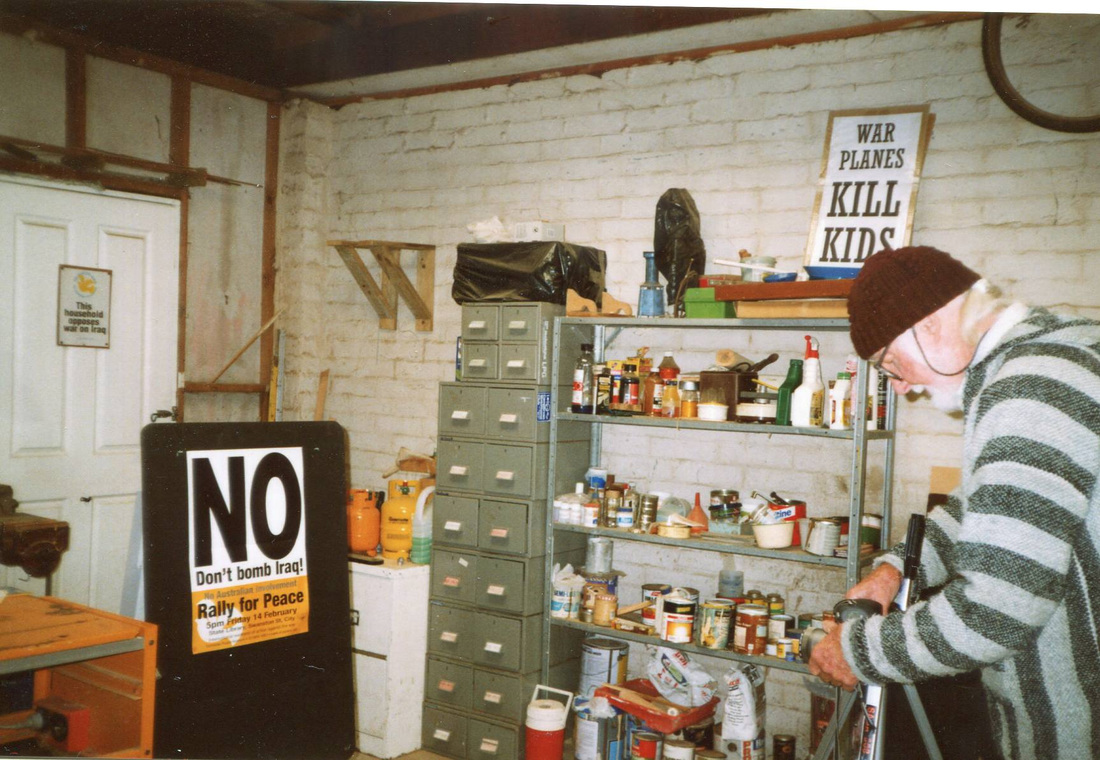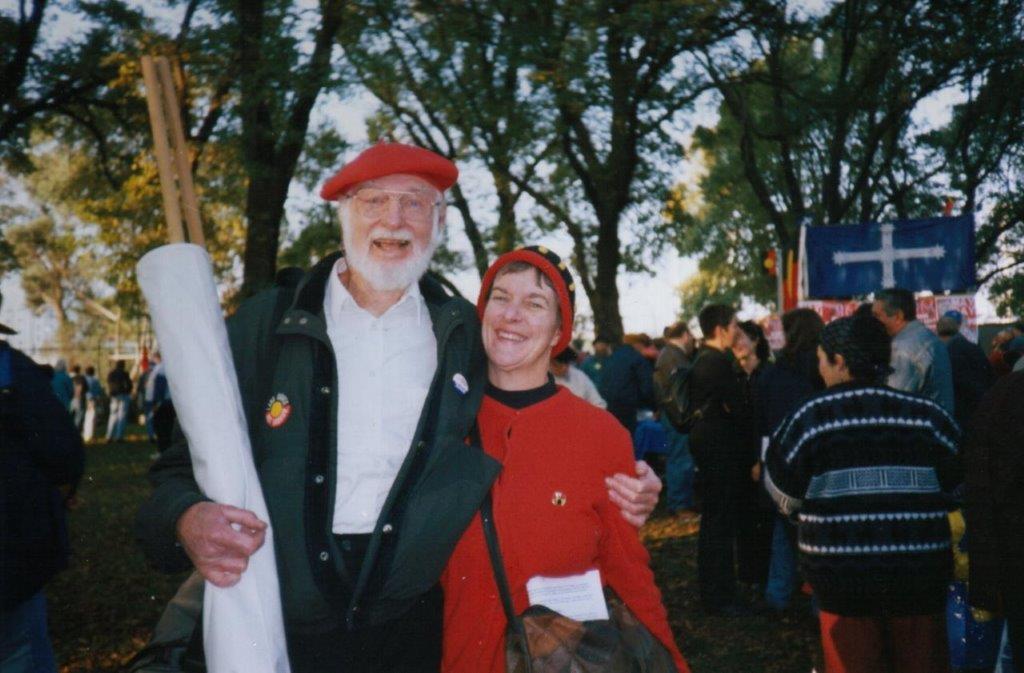|
John Brant Ellis was born on 3rd December, 1929 in Melbourne. He was educated at Albert Park Primary School and South Melbourne Technical School. Upon leaving school he completed a six-year apprenticeship to Hand and Machine Composition (Linotype operator). From 1951 till 1955 he held various typesetting jobs in Melbourne and Kalgoorlie as well as having a twelve month break on an overseas trip.
John had first become interested in photography when his mother gave him her precious bellows-type Kodak camera to take overseas in 1951. In 1955 John joined the Herald & Weekly Times Ltd. (HWTL). Circa 1958 he was appointed Supervisor of the Phototypesetting Department at the subsidiary Herald Gravure Printers in Hawthorn until he retired in May 1990. However, activities as a documentary photographer and a political activist continued until 2015. When John returned from travel and had settled into life at HWTL, he soon became the union representative for the Printers and Kindred Industries Union (now a division of the Australian Metal Workers Union). Having been brought up in the working class suburbs of Port Melbourne and Albert Park and surrounded by the wharves and industry, John was very much attuned to the struggles for better working conditions and pay. During the mid-to-late fifties technological changes were taking place in typesetting and The Herald was the first newspaper in Australia to install a photographic typesetter. Because John had followed developments in the printing industry he applied and was accepted for a transfer to Herald Gravure in Hawthorn where the new equipment had been installed. In 1961 he was granted a three month Herald Travel Scholarship to the United States and Europe to investigate new developments in photo-typography. John became involved in left-wing politics from 1970 as a result of opposition to the war in Vietnam. This opposition was reinforced by the fact that John’s two elder sons were approaching conscription age. His first political photos were taken at the Moorabbin Town Hall in 1971 when the American Doctor Benjamin Spock spoke against America's war in Vietnam. A counter demonstration by members of the local Nazi Party turned up outside the hall but were prevented from entering by organisers and police. John's photos recorded the event. After his retirement in 1990 John became a volunteer at the University of Melbourne Archives for a number of years. His first job there was to catalogue the files of the Campaign for International Cooperation and Disarmament (CICD). John had attended CICD's first meeting at South Melbourne Town in 1952. (It was at that stage called the Congress for International Cooperation and Disarmament.) John became an active member of CICD. A highlight for him was to help organise a CICD commemoration in honour of Paul Robeson in 1976. John continued to volunteer at the UMA on the collections of other left movements for a number of years. He also photographed many activist and trade union posters. In 2008 John returned to volunteer at CICD's office, the Peace Centre, in Trades Hall, Melbourne, where he worked on the next section of CICD records which were to be deposited at the UMA. After moving to Point Lonsdale in 1999, John photographed issues concerning reconciliation, refugees, the environment and local politics. His final projects were writing his memoirs and cataloguing section two of his political activism collection. The collection consists of files, books, tapes, leaflets, posters and correspondence relating to John's political activism and photography and will later be donated to the UMA. John Brant Ellis died at home peacefully on 15/6/2019. A well attended Celebration of the Life of John Brant Ellis was held at Geelong Trades Hall on 11/8/2019 with the support of the Campaign for International Co-operation and Disarmament (especially Romina Beitseen and Andrew Irving) and Socialist Alliance Geelong. Also contributing were the Victorian Trade Union Choir, Bruce McPhie, Sue Fairbanks from the University of Melbourne Archives, Marie Goonan from Camp Eureka, Musique Recorder Group, Peter Love from the Labour History Society Melbourne, Sarah Brown, Joan Coxsedge, Mark Ellis (son of John Ellis) and Dianne Jones (long time partner of John Ellis). A tribute in The Age On Line appeared 18/11/2019: https://www.theage.com.au/topic/obituaries-1qv and in print in The Age 13/12/2019. Sue Fairbanks from the University of Melbourne Archives wrote a tribute to John: https://blogs.unimelb.edu.au/archives/umas-tribute-to-john-ellis-activist-archivist-photographer/ Peter Love from the Labour History Society wrote a tribute: https://labourhistorymelbourne.org/2019/06/16/john-ellis/#more-2461 Award: Nominated for the SKA-TV Activist Media Award, October 6, 2004. Documentary: Featured in documentary Walking Through a Minefield, 1998. Publications: A Working Life, 2012, self published. John's working life in the printing industry. John Ellis Remembers, 2016, published by CICD. John's anti-war activities. Featured in A Shaft of Light Across the Land: Studies of Australian Peace Movements since 1830, 2006, published by History Department, University of Melbourne, "John Ellis: A Socialist for our Time" by Helen Stitt. Letters to the Editor, self published 2017. Memoirs - John Ellis, self published 2019. Talks: 1999: Acquisition of Part One by UMA, University of Melbourne, 2002 & 2004: Lighthouse Camera Club, Queenscliff. 2006: New International Bookshop, Trades Hall Melbourne, 2008: Brougham Gallery, Geelong, 2008: Living Book, Queenscliff Library, 2011: Swan Island Peace Convergence, Queenscliff. 2015: Swan Island Peace Convergence, Queenscliff. Political Actions leading to Arrests: 1. Early 1970s: Handing out anti-conscription leaflets. 2. 1978: Demonstration against poverty by the Australian Workers' Union. 3. 1983: Blockade against the Roxby Downs Uranium Mine. 4. 1978: Demonstration at Port Melbourne against US nuclear submarines. 5. 1996: Demonstration against Albert Park as the Grand Prix site. 6. 1998: Blockade against the Jabiluka Uranium Mine. Voluntary work: 1990 – 2005: University of Melbourne Archives- cataloguing left wing collections, including the Communist Party of Australia, Campaign for International Co-operation and Disarmament. 2006 – 2007: Queenscliffe Maritime Museum- carpentry, cataloguing post cards. 2008 – 2009, 2013: CICD- cataloguing files and tapes and photographing posters and banners at CICD 's office, Trades Hall, Melbourne. 2010 – 2012: New International Book Shop in Trades Hall- cataloguing and sorting second-hand books. Travel: 1951: USA and UK, one year. 1960: USA, UK and Europe (three month scholarship trip for HWTL). 1983: Nepal, six weeks trekking. 1993: USA, UK and Europe, three months. 1996: Cuba (work brigade) and USA, six months. 1998: Around Australia, three months campervan trip. 2000: Around Australia, three months campervan trip. Retired from Musical Group Memberships: Classical Guitar Society (Melbourne) Moorabbin Brass Band Musique Recorder Group South Melbourne City Brass Band Victorian Jazz Archives Victorian Recorder Guild Victorian Trade Union Choir Membership: Australia-Cuba Friendship Society Australian Society for the Study of Labour History (Melbourne Branch) Camp Eureka Working Collective Campaign for International Co-operation and Disarmament Victorian National Parks Association Point Lonsdale Civic Association Swan Bay Environment Association |
